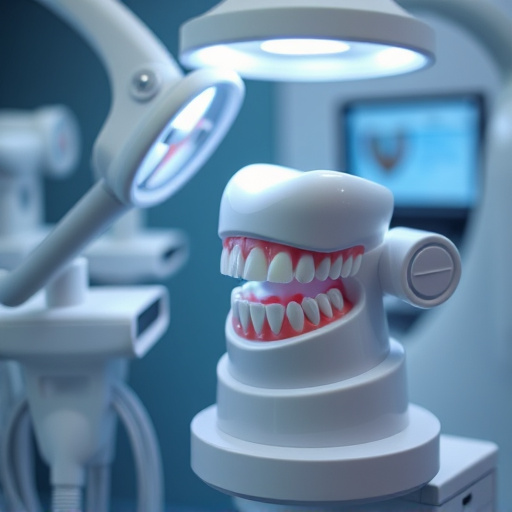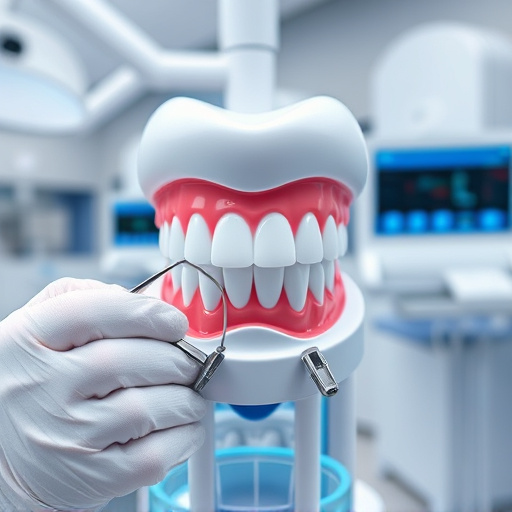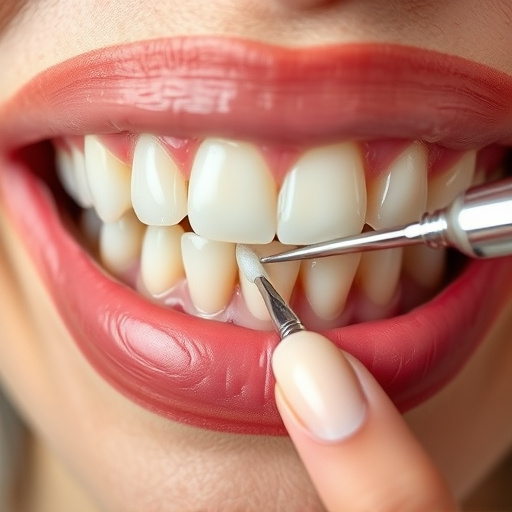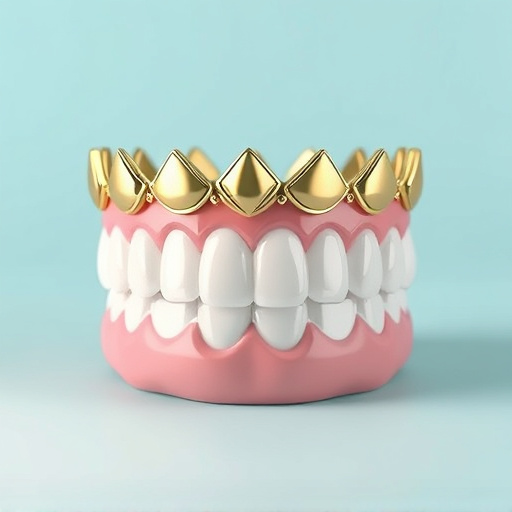Dental bridge replacement is an effective solution for missing teeth, preventing bone loss and maintaining jaw structure by providing pressure during chewing and speaking. It offers better bone preservation compared to implants or fillings, crucial for low bone density cases. Regular oral exams monitor changes in bone structure, enhancing long-term health benefits and chewing function while aligning with emergency dental care protocols.
After tooth loss, bone loss can occur, leading to a diminished jawline and potential complications. This article explores how dental bridge replacement serves as a robust solution not just for oral aesthetics but also for maintaining bone health. We delve into the process, benefits, and long-term advantages of this procedure, highlighting its role in preventing bone loss and promoting overall oral well-being. Discover why dental bridge replacement is a preferred choice for many.
- Understanding Bone Loss After Tooth Loss
- Dental Bridge Replacement: A Solution for Stability
- Long-Term Health Benefits of Bridges
Understanding Bone Loss After Tooth Loss

After tooth loss, especially due to conditions like decay or gum disease, the jawbone that once supported the tooth begins to deteriorate and shrink. This process is referred to as bone loss, and it’s a significant concern because it can lead to further complications such as facial collapse or diminished chewing function. When a tooth is removed, the nearby bones may no longer receive adequate stimulation from the missing root, which triggers a natural process of reabsorption where bone tissue is broken down and reincorporated into the body.
Dental bridge replacement offers a highly effective solution to this problem. By strategically placing a custom-fitted dental bridge that spans the gap left by the missing tooth, pressure and force are once again applied to the surrounding jawbone during chewing and speaking, which stimulates bone growth and maintains the structural integrity of the jaw. This is particularly important when considering options like dental implants or fillings, as these solutions may not provide the same level of bone preservation and support as a well-fitted dental bridge. Regular oral exams also play a crucial role in monitoring any changes in the bone structure over time.
Dental Bridge Replacement: A Solution for Stability

Dental Bridge Replacement offers a stable solution for those seeking to replace missing teeth and prevent bone loss. When a tooth is lost, the surrounding bone can gradually deteriorate, leading to significant structural changes in the jaw. A dental bridge replacement mimics the natural function of teeth by bridging the gap left by a missing tooth or teeth. This not only restores the aesthetic appearance but also provides crucial support, stimulating the jawbone and preventing further atrophy.
Compared to other options like wisdom tooth removal or relying solely on cosmetic fillings, dental bridge replacement offers a more comprehensive approach. For adults, it can be an effective alternative to implants, especially when bone density is a concern. Similarly, in children’s dentistry, where a primary tooth is lost prematurely, bridges can help maintain proper jaw alignment and promote healthy bone growth until the permanent teeth erupt.
Long-Term Health Benefits of Bridges
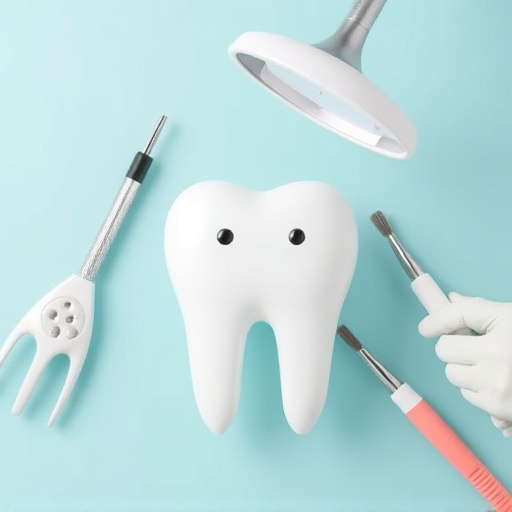
A dental bridge replacement offers more than just an aesthetic solution; it’s a key step in maintaining long-term health benefits. By replacing missing teeth, bridges help prevent bone loss that can occur when teeth are absent. The jawbone needs stimulation from teeth to maintain its strength and density, and a bridge provides this stimulation, promoting overall oral health.
Additionally, dental bridge replacement is an integral part of preventive and restorative dentistry. It not only improves your smile and chewing function but also aligns with emergency dental care protocols by addressing potential issues before they become more serious. This proactive approach to oral health can have profound effects on your overall well-being.
Dental bridge replacement offers a reliable solution for those seeking to prevent bone loss after tooth loss. By replacing missing teeth, bridges provide stability and stimulate jawbone health, ensuring long-term oral well-being. This procedure is not just about aesthetics; it’s an investment in your overall health, as maintaining robust jawbones is essential for facial structure integrity and effective chewing. Opting for a dental bridge can thus lead to improved quality of life and lasting oral health benefits.








